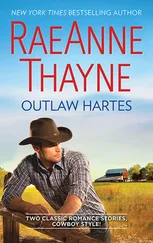“And this,” Mike boasted less than half a block from West Broadway and the frontier of the Village, “is Zap, titular deity of changes, in whose presence nothing is ever the same.” Zap was pretty formless and it hurt my eyes to look at him.
“Are you sure you’re doing the right thing?” I worried. Michael only smiled.
Then we entered the Village. Suddenly Mike blew three loud blasts on a police whistle. The orchestra — my orchestra, mind you! — struck up a march:

heavy on the piccolos and very loud. Michael’s gods and goddesses scattered to the five winds, and the action instantly became too confused to follow.
Mick ran up Bleecker Street, and every teen-aged girl he passed screamed and followed him. He zigzagged back and forth across the street, ignoring traffic, and the girls, screaming, followed him, making traffic impossible. Weeping girls performed incomplete flying tackles at his legs as he passed. Overwrought female tides brutally washed over anything, especially people, that stood between themselves and Mick. The clamor of auto horns, shrill screams, and breaking glass threatened to drown out my orchestra, and I rather wished it would.
Mick was built for running and stayed easily ahead of his following. Every now and then he paused to kiss some unsuspecting chick, who promptly fainted. The sidewalks on both sides of the street were littered with broken glass, abandoned escorts, and the limp bodies of kiss victims.
Close behind Mike came Fellatia, vigorously propositioning the abandoned escorts, who fled in yelping droves before her.
Phlipout, Phlippina, and Toke ambled into every coffeehouse, restaurant, street food dive and bar on the street, all the patrons of which instantly ran outside in noisy panic, there to encounter Moe, who yelled, “All you people’sh jush a bunch a’ flippin’ faggots! C’mon, lesh fight!” and struck out indiscriminately at everyone in reach.
Meanwhile Buldge, smiling vacantly, strolled up to every female, conscious or not, who remained after Mick’s army had passed, saying, “Oooo, are you gonna have a little baby, too? I bet you are,” causing every girl who hadn’t fainted yet to faint.
Behind Buldge came Zap, now nine feet tall and formless, shooting purple rays from his (perhaps) fingertips at every overt hippy in sight. “Oh WoW!” or the equivalent the smitten hippies yelled. “Oh WoW!” and took off like stampeding hippies, running in tight circles and pleading, “Get out of my head! Oh WoW!”
Through this confusion, Chuck, the super-Mike, strode calmly, giving orders (“Come back, Buldgie love, you missed this one!”) and tending to such minor details as cops, mounted cops, and cops in prowl cars. Cops he passed developed uncontrollable urges to disrobe, horses tried to climb light poles, and prowl cars suddenly issued vast clouds of black, evil-smelling smoke.
The carnage swept forward faster than we could walk, and soon turned north at MacDougal Street and passed out of sight, though not out of earshot (whatever that might be). Bleecker Street looked like something out of World War II: broken windows, overturned cars, and fallen bodies as far as we could see. Only Mike, the orchestra, and I were still erect and functioning. The orchestra played the dead march from Saul and we picked our way delicately through the rubble.
Despite the devastation all around me — my own, my native land, in ruins — I still felt great. The Reality Pill, I thought, had much to recommend it, if you didn’t mind a little chaos on the side. But, “Is this what you really wanted?” I asked Mike.
“Well,” he said, looking slowly around him, “I am a little disappointed.”
“Oh?”
“I was expecting something a little more colorful,” he sighed.
“Oh.”
The sound of screams et cetera grew faint as Mick and Company tore up MacDougal toward West Eighth, where they were sure to do such things as I shuddered to imagine. In the distance an approaching chorus of sirens could be heard. A few photographers had already appeared — that was a big summer for photographers — and flashbulbs popped around us like exclamation points.
MacDougal Street, when we reached it, proved to be utterly impassable. Cars and trucks, not all overturned, sprawled every which way like mechanized spaghetti, blocking street and sidewalks equally. Dazed survivors of all types and genders wandered aimlessly through the ruins, mouthing strange, poetic expressions of dismay. Every window above street level was crowded with frightened people gibbering in nameless tongues. An acrid blue haze hung over everything, pierced by sporadic flashbulbs. A very blonde girl, naked except for an arcane blue and red tattoo above her navel, sat cross-legged atop an overturned chrome trailer truck playing aimless squiggles on what seemed to be a soprano recorder.
“Busy,” I observed.
“Indeed,” said Mike.
“Detour?”
“Detour.”
So Mike and orchestra and I went on to Sixth Avenue, which was still untouched by the gods.
Rescue vehicles started arriving as we walked up the avenue — dozens of police cars, lots of ambulances, three or four full fire companies, and some odd National Guard equipment left over from Saturday.
“That’s what I call prompt action,” I said.
“Right. Sort of gives you confidence, doesn’t it?” Mike answered.
Despite the orchestra — which I, for one, would’ve noticed right away — we attracted no attention as we made our melodious way toward Third Street. This was mainly because the rescue vehicles, arriving from every possible direction, created an instant chaos of their own, a modern consort of horns, sirens, screeching brakes, tearing metal, and obscure, thickly accented obscenities.
“I don’t know,” I worried. “It doesn’t give me all that much confidence, really. I mean,” waving expansively, “look. I’ve seen better organized games of pick-up-sticks.”
“Nobody’s perfect,” Mike forgave them.
The orchestra played Telemann. That bassoonist played Vivaldi.
The Garden of Eden was packed with jabbering refugees, but its windows were intact.
“Jesus Christ!” Joe yelled from behind the cash register as we entered. “Wha’s happenin’!?”
We shrugged eloquently and groped our way to the table. Only strangers were there, none of our people. We unseated two of them, ordered coffee, and relaxed.
“Are you satisfied?” I asked.
Mike looked doubtful. “I’m not sure,” he said. “There’s got to be more to it than this.”
“Excuse me,” said another tall blue lobster, making its way to the John.
“One of yours?” I wondered.
“I thought it was one of yours.”
“I don’t like blue lobsters.”
“Oh. I guess the party’s broken up.”
That gave us something to think about, so we did. We weren’t the only people roaming through the city high on Laszlo Scott’s famous Reality Pills in liquid form. Not a bit of it. And what were those other few hundred maniacs doing? Our minds mutually boggled.
There was a disturbance at the door, but we carefully ignored it. We’d had enough disturbance for a while. The disturbance got louder, harder to ignore, but still we managed. Then a new note was added to the disturbance, a flat note, obviously uttered by a skitterish bassoon. “Uh-oh,” I commented.
“Hey, Andy!” Joe barged through the crowd toward us. “There’s these People outside that they say they’re like friends of yours, and…”
Something tripped him and he fell. The orchestra marched sedately over him, playing somebody’s Trumpet Tune full blast. The Garden of Eden became unwholesomely crowded.
Читать дальше












